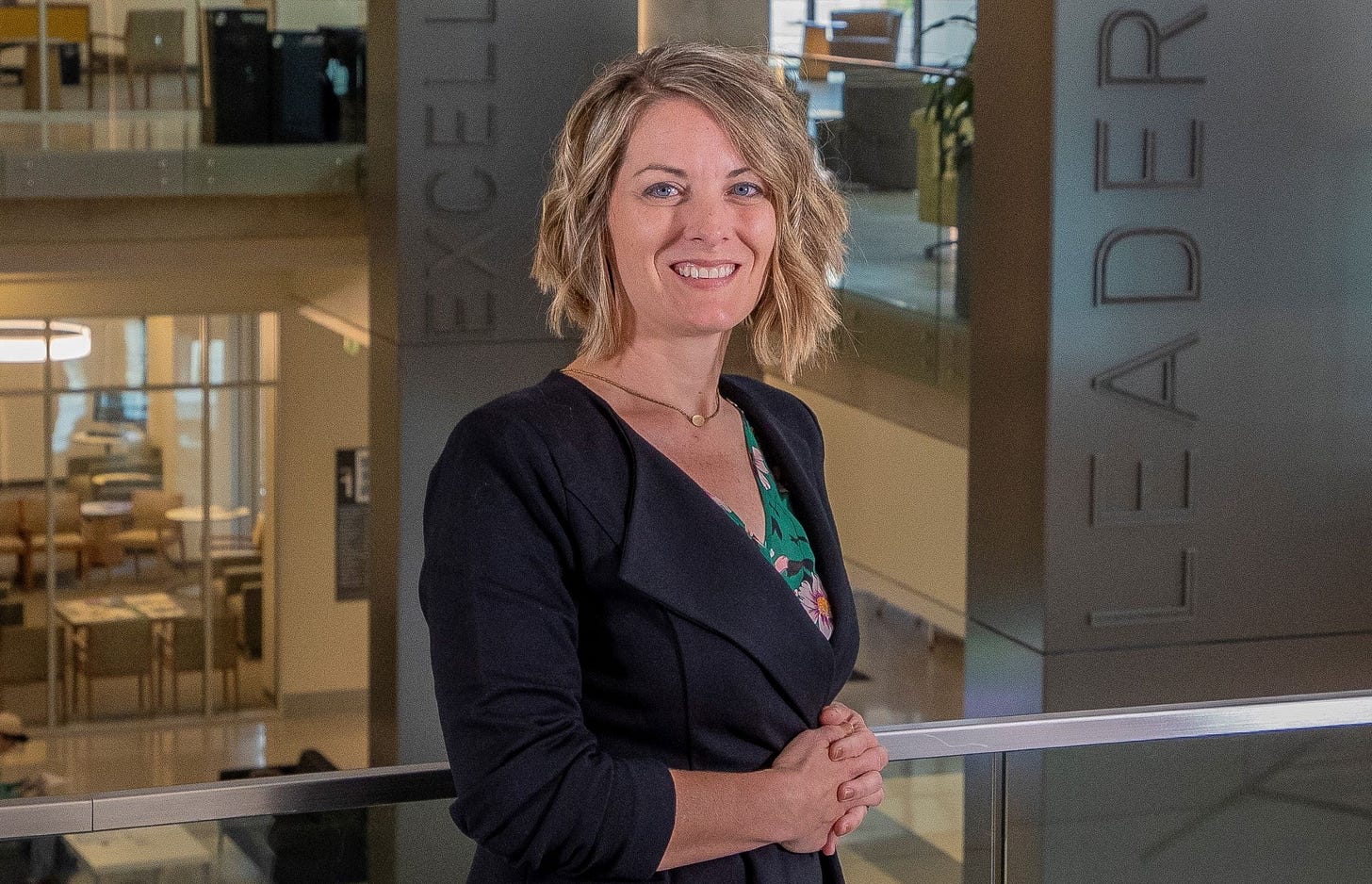Coming This Week, You're not a Doormat, Leaders Being Challenged, the Remedy for Assumptions
Peacemakers aren't weak. Here's why. Leaders benefit from being challenged. Assumptions cause big problems. Here's what helps, a lot.
Red Diamonds is a feature that was a section in Communication Intelligence magazine, now out of circulation, from July 2021 to May 2024.
I’m reintroducing it now, in Communication Intelligence, the newsletter.
Red Diamonds will be a feature that showcases the most illuminating quotes from sources in published articles over the last week. I break it down if you didn’t have time to read the articles or would like some selected highlights.
This week’s issue: Free
Articles Coming This Week
How not to Lose Every Relationship Argument (Sunday Night Extra)
Thought Leadership to Build Trust (publishing Tuesday)
Receiving and Giving an Unsolicited Apology (Thursday)
Highlights from This Past Week
Peacemaking at Work is not Weakness (here’s why)
“Peacemakers are not doormats,” asserted Sara Jansen Perry, PhD and a professor of management at Baylor University’s Hankamer School of Business, in the article, 10 Tips to Communicate More Effectively.
"On certain hot-button issues, you are unlikely to change someone’s mind,” Jansen Perry has said. “Rather than trying to convert them to your way of thinking, which can quickly backfire, make 'connection' the higher goal."
This is about reacting in unexpected ways to help de-escalate conflict and emotions, in an effort to really uncover the interests mentioned above.”
The pursuit remains, “collaborative problem solving, or creating more value for all sides — myself and others — which requires more creativity and more patience in understanding what everyone really wants and needs,” she stresses.

This requires adjustments in process thinking and expectations.
“Sometimes it’s taking a longer view, focusing on building a relationship that will create value in and of itself,” Jansen Perry offers as a worthwhile effort.
“The higher goal might be the connection and opportunities in the future; it is this bigger-picture perspective, rather than just doing a transaction or ‘beating’ someone in an argument.”
What comes from building relationships?
“… as goodwill builds, there will be opportunities to discover more and more points of connection around contentious issues,” Jansen Perry said in the Baylor-published article.
“People want to help people they trust and with whom they have a good relationship,” she says. “They are also more likely to open up to and to listen to people they trust.
The map to establishing and nurturing that trust is accomplished by “looking for common ground” because “that helps us see each other as humans, rather than as positions to be fought or conquered, which builds trust and goodwill,” Jansen Perry explains.
Leaders Benefit from Being Challenged
“Build a network of people who will hold you accountable, question your assumptions and push you to take bold actions,” wrote Nick Makris at his Compounding Leadership newsletter at Substack.
His conclusion: “Consistent challenge leads to consistent growth.”
“We can frame associating with people who well-meaningly challenge us as a sign of confidence,” says Azadeh Weber, PsyD, a clinical psychologist for online group psychotherapy, social skills development and neuro-linguistic programming (NLP).
“Confident people are more likely to appreciate a social environment that supports growth mindset.”
“When we choose to surround ourselves with people who challenge us, not only does it normalize the fact that we can do a lot more than what we think we can, it begins creating new neural pathways in the brain that make you think and behave differently,” says Michelle Smith, a private practice psychotherapist who focuses on clinical hypnosis, eye movement desensitization and reprocessing, and subconscious brain patterns.
A network, or personal board of advisors, may be more reliable than relying on one person.
“We can learn about who we are and develop in a vacuum, however ideally, we have a network of people to support our growth mindset,” Weber says. “Everyone sees things from different perspectives and the more perspectives we have on our blind spots and areas for growth, the greater the chances we will deepen our self-awareness.”
“We cannot expect any one person to fill every emotional or social need we may have,” Smith says, “so finding a network of individuals can be more helpful than relying on one person to be able to instill a thinking or behavior change internally.”
Remedy for Fuzzy Understanding
“One of the biggest hidden barriers to effective communication is assumption,” wrote Diane Hamilton, PhD., a behavioral expert, author and consultant. “We think we’ve been clear because we know what we meant. But clarity is measured by the listener’s understanding, not the speaker’s intent.”
“I once had a boss who believed he communicated perfectly,” she wrote. “When people misunderstood him, he’d say, ‘If you had just listened to what I said.’ The problem wasn’t people’s listening. It was his lack of clarity.”
“That’s why paraphrasing is such an underrated tool,” Hamilton wrote, going on to explain, “When someone repeats back what they understood, it gives the original speaker a chance to clarify before confusion snowballs into mistakes.”
Precision, as in most things, matters.
“It’s simple,” Hamilton claimed, “but it requires slowing down, which many leaders don’t make time for.”
Going Off the Rails
“Instead of asking questions to clarify, we assume we already know,” Hamilton wrote. “Instead of checking for understanding, we double down on our original point.
“When both sides are operating from their own assumptions, the message often gets lost completely.” That’s the risk we too often assume, unknowingly, of course.
EQ isn’t Enough
“Yes, emotional intelligence matters,” Hamilton admitted. “But a high EQ level alone won’t fix communication if people don’t ask questions, pause to listen or admit when they’re unsure.”
The Other Variable
“Curiosity is often the missing link,” she wrote.
She explained why.
“It’s what prompts us to explore what’s unclear instead of pretending to understand,” Hamilton wrote. “In my research on curiosity in the workplace, I found that people frequently hold back questions because they fear sounding uninformed.”
That’s not the bigger risk, she asserted.
“The cost of not asking is far greater,” she argued.
“It allows people to clarify expectations, challenge assumptions and invite perspectives that weren’t previously considered,” she expressed.
Paraphrasing + Emotional Intelligence + Curiosity = Better Understanding.
These skills and acts improve communication and help us more frequently and reliably achieve objectives, not block them.
Communication Intelligence Red Diamonds is a paid subscriber feature and section.










